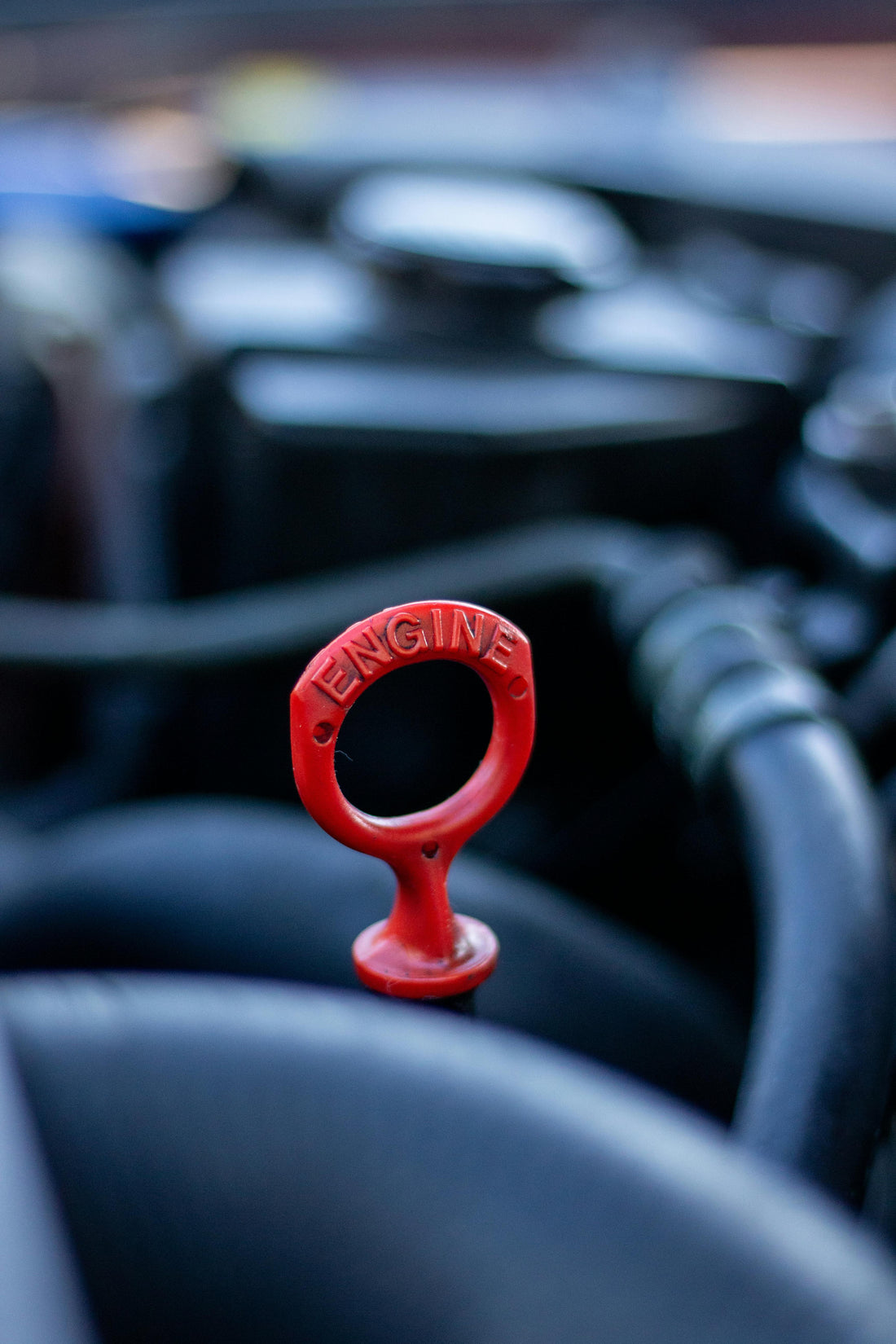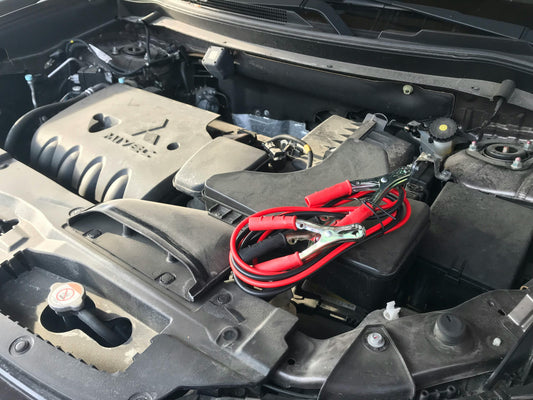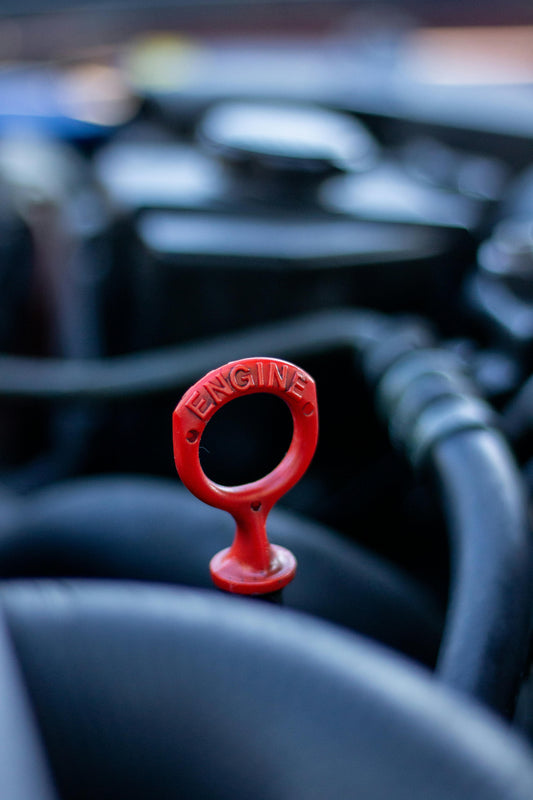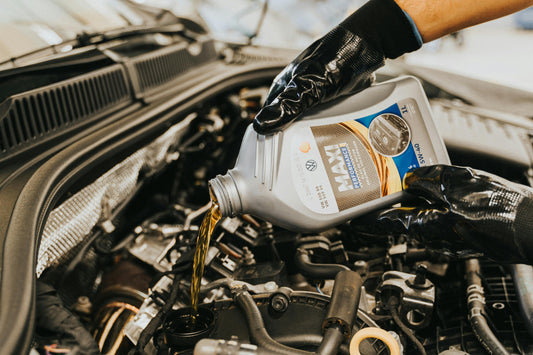Engine oil is the lifeblood of your car engine, just like blood is to a human body. Engine oil is stored at the bottom of your engine in the oil sump. The moment you start the engine a mechanical pump inside your engine begins to circulate the oil around your engine.
What does engine oil do?
Reduce Friction. The moving parts inside an engine, such as the pistons, crankshaft, camshaft, and valve lifters, are in constant motion. Engine oil forms a thin but crucial layer between these moving parts, preventing them from coming into direct contact with each other, thus reducing friction.
Manage heat. While the engine is running, a significant amount of heat is generated by the combustion process. Engine oil absorbs some of this heat from the moving parts and carries it away to be dissipated. Oil helps maintain a safe operating temperature, preventing damage and allowing the engine to function efficiently.
Clean. Engine oil has the ability to suspend dirt, metal particles, carbon buildup, and other contaminants that accumulate as the engine runs. As the oil circulates through the engine, it carries these contaminants through to the oil filter, where they are contained.
Protect. Engine oil creates a protective layer over metal surfaces inside the engine. This prevents moisture from coming into contact with bare metal parts, which could cause rust and corrosion.
Enhance performance. Engine oil helps to seal the gaps between the piston rings and the cylinder walls. This allows for better compression during the combustion process, ensuring that the engine operates efficiently and maximizes power output.
Running an engine without oil would permanently damage it within minutes if not seconds. Without oil, metal components inside the engine would rub against each other with no lubrication. This would quickly lead to overheating, friction damage, seizure and complete engine failure.
So not only does your engine need oil but you also need to make sure you choose the correct oil to avoid any issues further down the line.
How often should I change my engine oil?
It is critical to change your oil regularly to maintain engine performance. As a general rule of thumb you should change your oil and oil filter every 10000 miles or 12 months, whichever comes first. However we would always recommend you check your owners manual and service schedule as the intervals will vary from car to car

Over time, engine oil degrades as it becomes contaminated and loses its effectiveness. It will turn black as a result of those contaminants. The high temperature inside your engine also causes oil to oxidize and break down. If your engine oil is black it is definitely time for an oil and filter change.
What are the types of engine oil available?
Mineral oil is refined from crude oil. It provides decent protection and lubrication, but it does break down quicker, meaning more frequent engine oil changes. Older engines tend to prefer mineral oil and don’t function as well on full synthetic or semi-synthetic.
Full Synthetic oils are engineered in a lab rather than sourced from the ground. They are preferred by new and high-performance engines. Full Synthetic oil provides better lubrication and resistance to higher temperatures and can cope with longer service intervals without breaking down.
Semi Synthetic oils are a blend of Mineral and Full Synthetic offering a middle ground in price and performance that suits a wide range of vehicles. Semi-Synthetic oil is preferred by turbo diesel engines.
What do the numbers on the bottle mean?
The numbers on a bottle of engine oil indicate the weight of the oil. Weight refers to the viscosity (thickness) of the oil and how fast it flows at a set temperature. The higher the number, the thicker the oil and the slower it flows.

Most oils today are multigrade, meaning they flow at a different rate depending on their temperature and therefore will have two numbers. For example SAE 5W-30.
The first number is a measure of vIscosity being 5 weight and is followed by a W, which stands for ‘winter’. The lower the number the faster the oil flows, but only when the engine is cold. As the engine warms up, the oil acts as a thicker oil for more protection and in this case up to 30 weight. This is why the higher number is given.
What do the letters before the numbers mean?
These letters refer to the organisation classifying the oil and are as follows:
- SAE meaning ‘Society of Automotive Engineers’
- API meaning ‘American Petroleum Institute’
- JASO meaning ‘Japanese Automotive Standards Organisation’
- ACEA meaning ‘Association des Constructeurs Européens d’Automobiles’
- ILSAC meaning ‘International Lubricant Standardization and Approval Committee’
Which Engine Oil should I use in my car?
The easiest way to find out which engine oil you should use is to check your owners manual. Here you will find the oil classification and oil grade required for your car.

Taken from a Toyota LandCruiser 2008 owners manual.
You can also visit the websites of the many auto retailers and motor oil brands. Just enter your registration number or vehicle details then search to see what is suggested for your car. For example Penrite have an excellent website where you can search their engine oils here.
Is thinner oil better than thicker oil?
No. You must use the correct oil as specified in your owners manual regardless of the viscosity. Engines are designed around the oil viscosities as this sets the tolerances of the moving parts. If you use the wrong viscosity, whether the oil is too thick or too thin, then it can cause the moving parts and components to wear out early as they are not being oiled correctly.
Turon Auto recommend that you only purchase genuine auto parts for your vehicle. We currently stock Toyota, Mitsubishi and Nissan auto parts. To get 10% off your first order at Turon Auto be sure to sign up.
If you have any questions or would like help confirming a part number please feel free to reach out to us via our Contact Us page.




